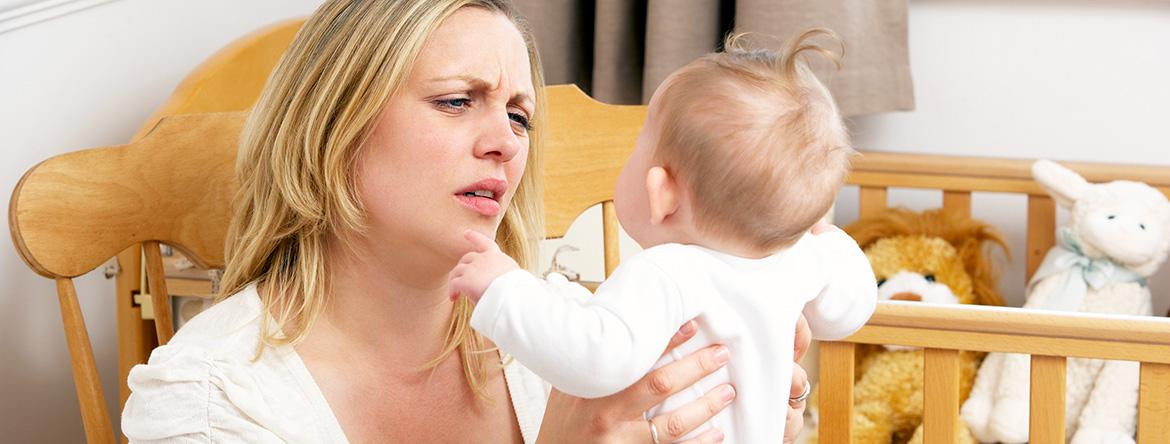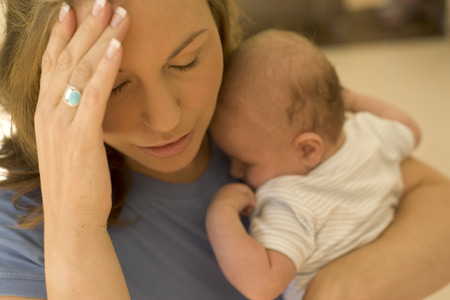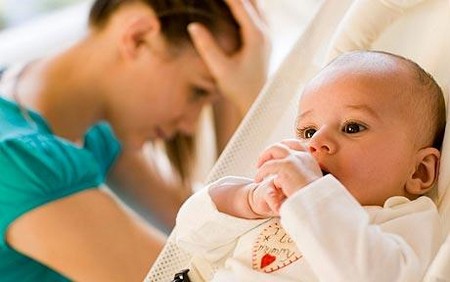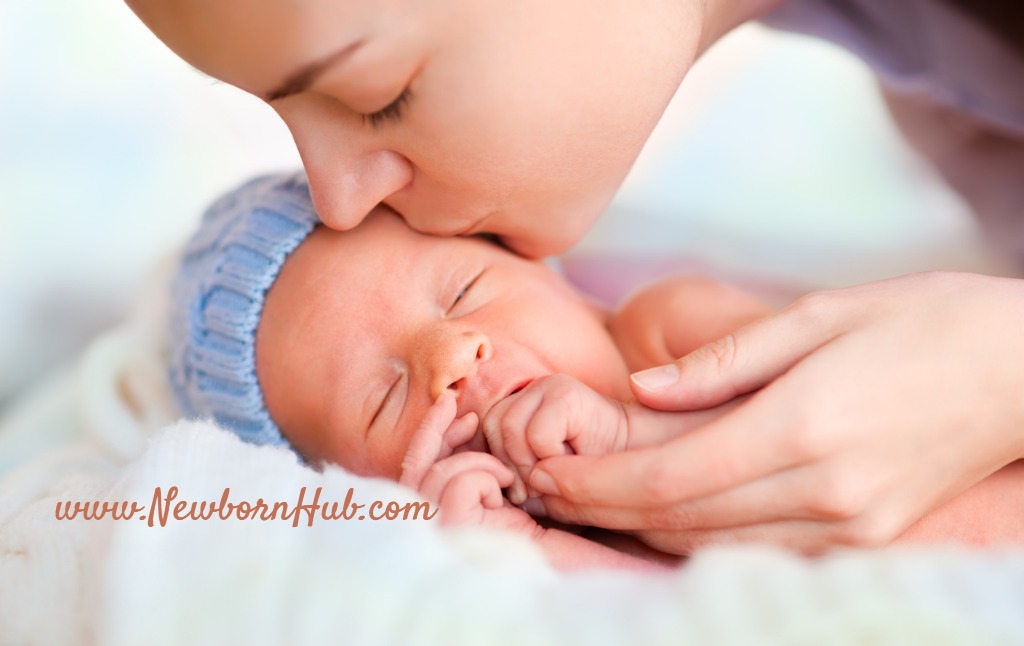Are you suffering from Postpartum Depression?
Understanding and accepting Postpartum Depression could be quite tricky. Do you cry for no reason? Do you feel low most of the time? 80% of new moms suffer from baby blues, and if not taken care of on time, could turn into long-term Postpartum Depression.
“Parenting is exactly like I imagined it to be” – said no parent, ever! Having a baby is physically, mentally and emotionally exhausting no matter how much you prepared yourself for it, and it is quite normal to feel baby blues once your newborn arrives.
What are "Baby Blues"?
Symptoms of baby blues include:
- Mood swings
- Anxiety
- Feeling sad for no reason
- Sleep problems
- Crying episodes
- Decreased concentration
After a few weeks, these feelings will either go away or get stronger. If they don’t go away and you keep on feeling worthless and depressed, then you may have Postpartum Depression (also known as Postnatal Depression), which 10%-16% of mothers go through.
Baby Blues vs Postpartum Depression
Post partum depression (PPD) may begin anytime during the initial 2-3 months after birth. PPD symptoms may appear to be like that of Baby Blues but soon these symptoms become more intense and long lasting, interfering in your daily activities while you struggle to take care of your family, new baby and yourself.
Symptoms of PostPartum Depression:
The symptoms of postnatal or post partum depression are:
- Feeling tired and exhausted all the time
- Feeling angry over petty things
- Strong negative feelings such as sadness, hopelessness, worthlessness, helplessness and guilt
- Crying spells for no reason
- Difficulty in concentration
- Anxiety
- Losing interest in activities you used to enjoy before
- Insomnia
- Abnormal appetite (eating too much or too little)
- Body aches without a reason (headache, stomachache, backache, etc.)
- Lack of interest in yourself or the baby
- Loss in sex drive
- Negative feelings towards life and the baby
- Withdrawing from socializing with friends and family
- In extreme cases, recurrent thoughts of death and harming yourself and/or the baby
If untreated, post partum depression may last for many months and even more.
How to treat PPD?
You may find it embarrassing to admit that you have most of the above mentioned symptoms, but talking to your doctor is the best thing to do. If your baby blues symptoms don’t fade away after few weeks and you feel they are getting worse instead, consult your doctor immediately. Your doctor will examine you physically and mentally and may come up with the perfect plan (sometimes medicines are involved).
Apart from following your doctor’s advice, here are some ways in which you can fight postpartum depression.
- Be good to yourself. Having Post partum depression does not make you a bad mom; it does not mean that you love your child less than any other mom.
- Reduce self-expectations. Remember that there is no such thing as a Super-mom, and you are not competing motherhood with other moms. You are your baby’s most beloved possession and to your kids you will always be that. Try to enjoy each day as it passes.
- Get help with housework and baby, even if it is for just an hour. Talk to your spouse, friend, neighbor or a family-member for some regular help. Hire a nanny if you can afford one.
- Take time out for yourself, even if it is for just 25 minutes. Do something you would want to do; like watch a TV sitcom, chat with a friend, read something funny, go out for a walk (though you can do this with your baby in a stroller as well), or anything that can make you happy.
- Share your thoughts with a close friend on regular basis or keep a diary and express your emotions. Join an online support group. Letting everything out will make you feel a lot better.
- Give yourself credit for things you do well regarding yourself, your baby or the family. Indulge in some easy DIY ideas that will make you feel creative. Instead of being too harsh on yourself on the three things you couldn’t do, concentrate on the one thing you did well today. If you feel you didn’t do anything today from your to-do list, be optimistic: tomorrow is a new day! Remember: you need to live "one day at a time"
- Look good. If you look good, you will feel good. Take care of your body and personal hygiene. Bring some nice change to your wardrobe or have a haircut you always wanted to get. If you are worried about your post-pregnancy weight and feel low about it, remember that you didn’t gain all that weight in a month; give your body some time to come back to the pre-baby shape.
- Get out! Enjoy the sunshine. Put your baby in a stroller and go out for a walk. Studies believe that sunlight can lift one’s mood. Take the stroller out for some shopping. Your baby will enjoy the ride and you can reward yourself with some nice shirt, bracelet or shoes (a woman can never have enough of those!). You can go to a nearby park with your baby in the stroller, make friends (you will be amazed to meet many new mums going through the same situation).

The postpartum depression is often hard on the partner too. Discuss your concerns, thoughts and emotions with him, and share his feelings as well. Mutual love, understanding and support will make this phase fade away sooner than you thought it would.
Remember, for every problem there is a solution, and Postpartum Depression is no different.
Return to Parenting Help section or to the Homepage.
- Check out our Baby Jokes & Humor section - because every parent needs a good laugh! : )
- Are you stressing too much for no reason? Check out if you are a Helicopter Parent.
- How about digging into some Arts & Craft? That can make you feel creative!






New! Comments
Have something to say about what you just read? Leave me a comment in the box below :)